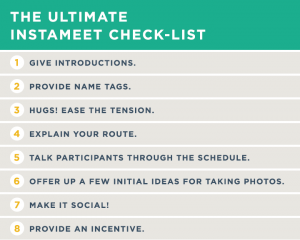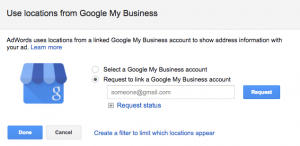Best known for its innovative spirit, it’s no surprise that Google would apply this same philosophy every aspect of the recruiting process – even the job interview. Lucky for this $ 350 billion behemoth, Laszlo Bock, the company’s Senior Vice President of People Operations, knows how to shake up the traditional job interview to better predict how a job candidate will actually perform if they joined the organization.
Personally, I’ve heard a few stories from friends who have been recently interviewed by Google. Across the board, the sentiment is the same – it’s an experience like none other. So when I received an e-mail from my husband about an excerpt of Bock’s book “Work Rules!,” I dropped everything and read it. (And frankly, this is good reading for anyone responsible for conducting interviews.)
There’s real data science behind Google’s job interviews
Instead of asking well-meaning, but insight-deficient, questions (“Tell me about yourself.”“What is your greatest weakness?” “What is your greatest strength?”), Bock decided to put a little bit of science into the process. With a well-structured approach assessing behavioral and situational approach intelligence, candidates are asked a consistent set of questions with clear criteria for determining the quality of their responses.
But, what makes the process really interesting is how they score their candidates. Bock notes, “We then score the interview with a consistent rubric. Our own version of the scoring for general cognitive ability has five constituent components, starting with how well the candidate understands the problem. For each component, the interviewer has to indicate how the candidate did, and each performance level is clearly defined.”
By applying data analytics to assess the outcome of the interview process, Google is better equipped to pinpoint which candidates have the best potential for success at the company.
Could Google’s approach work for every business?
Grant it, Google’s method is not a one-size-fits-all solution. But there is one aspect that recruiters and hiring managers can apply: predictive analytics.
According to the Center for Business Intelligence inquiry “The Science of Hiring: How HR Analytics Can Help Fix the Talent Crisis”, “Analytics is not a silver bullet for the challenges HR teams face, but it can provide a stronger foundation for finding, recruiting, hiring, and retaining people who not only have the skills to succeed but who also align with an organization’s culture”.
But first, HR leaders need to work closely with the executive leadership and hiring manager to make sure candidate assessment rubrics align with the goals and strategy of the entire business, as well as the specific organization. “You can’t have analysis come out of HR in a vacuum,” observes Alec Levenson, senior research scientist for the Center for Effective Organizations at the University of Southern California’s Marshall School of Business. “There has to be a close partnership between HR and managers so that they come to common agreement on the issues, the analysis to be done, and the action taken afterwards. Otherwise, you can end up with the best insights ever, but it won’t matter because they will be rejected. Analytics has to be part of the change process.”
Of course, this approach is easier said than done. Brock cautions, “People will disagree with data if it runs counter to their intuition and argue that the quality bar doesn’t need to be so high for every job.” But, it appears that Google’s approach to job interviews is working. Hailed as the most successful Internet company of our time, Google has not only made accessing information more convenient, but it also changed how we live, work, and play. And its success would not have been possible engaging the right people from the very start – the job interview.
(232)







